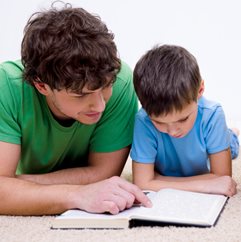Telling Your Child They Are Donor Conceived
 If you are thinking of creating your family through donated gametes - sperm, egg or embryo - or you already have children, you may have wondered how best to explain their biological origins to them as they are growing up. Donor Conception Network may be able to help you.
If you are thinking of creating your family through donated gametes - sperm, egg or embryo - or you already have children, you may have wondered how best to explain their biological origins to them as they are growing up. Donor Conception Network may be able to help you.
Telling your child they are donor conceived
DCN is a national charity which was started over 20 years ago by five families who had children through sperm donation and wanted to support each other and encourage others to be open with their children. Now there are 1700 member families and individuals, including lesbian and single parent families, heterosexual families, donor-conceived adults and those who are still thinking about whether donor conception is right for them. Some are pursuing treatment in the UK, others abroad; and their donors may be known, id release or anonymous. The DCN website (www.dcnetwork.org) includes amongst other things personal stories and a bookshop selling DCN publications about how to talk to your children about donor conception, and books for your children themselves.
DCN workshops
DCN also runs workshops open to all, both for those preparing to become parents, and for those who already have children.It is a chance to explore all the issues in a safe and confidential setting; the facilitators are skilled in running groups, and equally importantly are all parents of donor-conceived children. There are separate groups for heterosexual couples, and for lesbian couples and single women, as people often say they welcome the opportunity to talk things over with others in similar situations.
One recent participant on the Preparation for Parenthood workshop stated: 'Thoughtfully put together with a good balance of factual, practical content whilst maintaining focus on the emotional and psychological impact of donor conception.
DCN believes that the more open parents are about donor conception the better it is for the health of individuals and families. If you would like to find out more, look on the website, or phone 020 7278 2608, or email enquiries@dcnetwork.org if you would like to know more or discuss something in confidence.